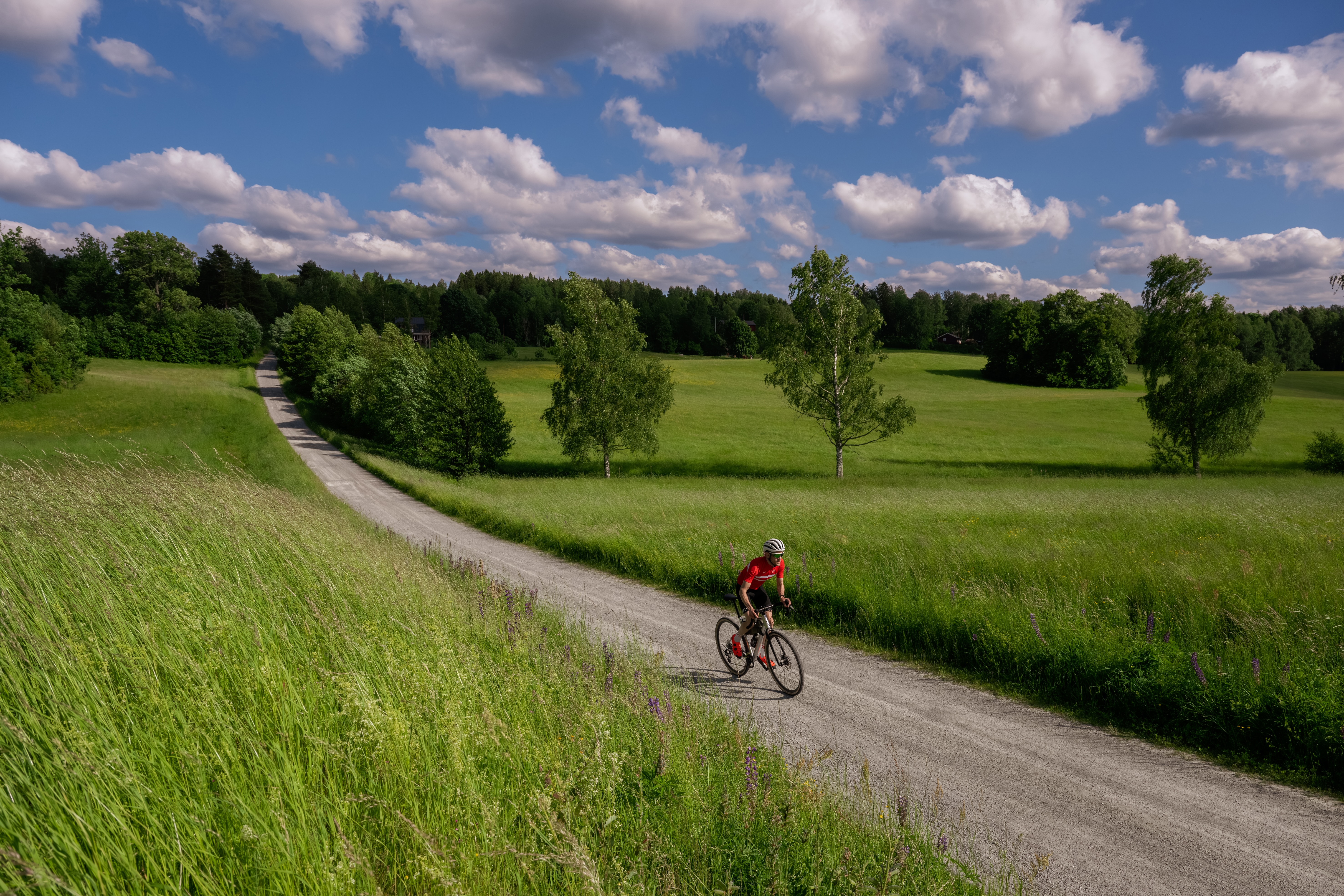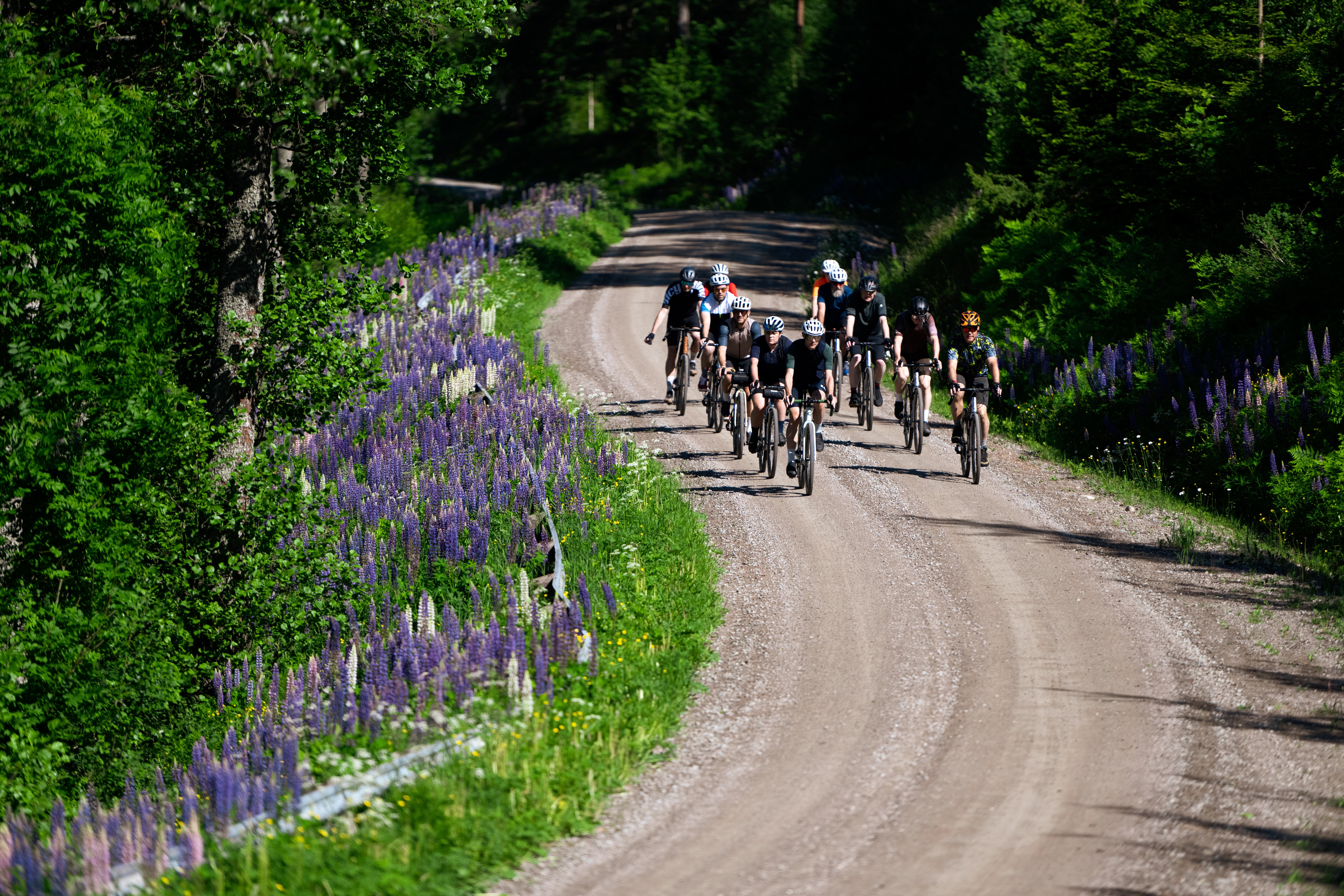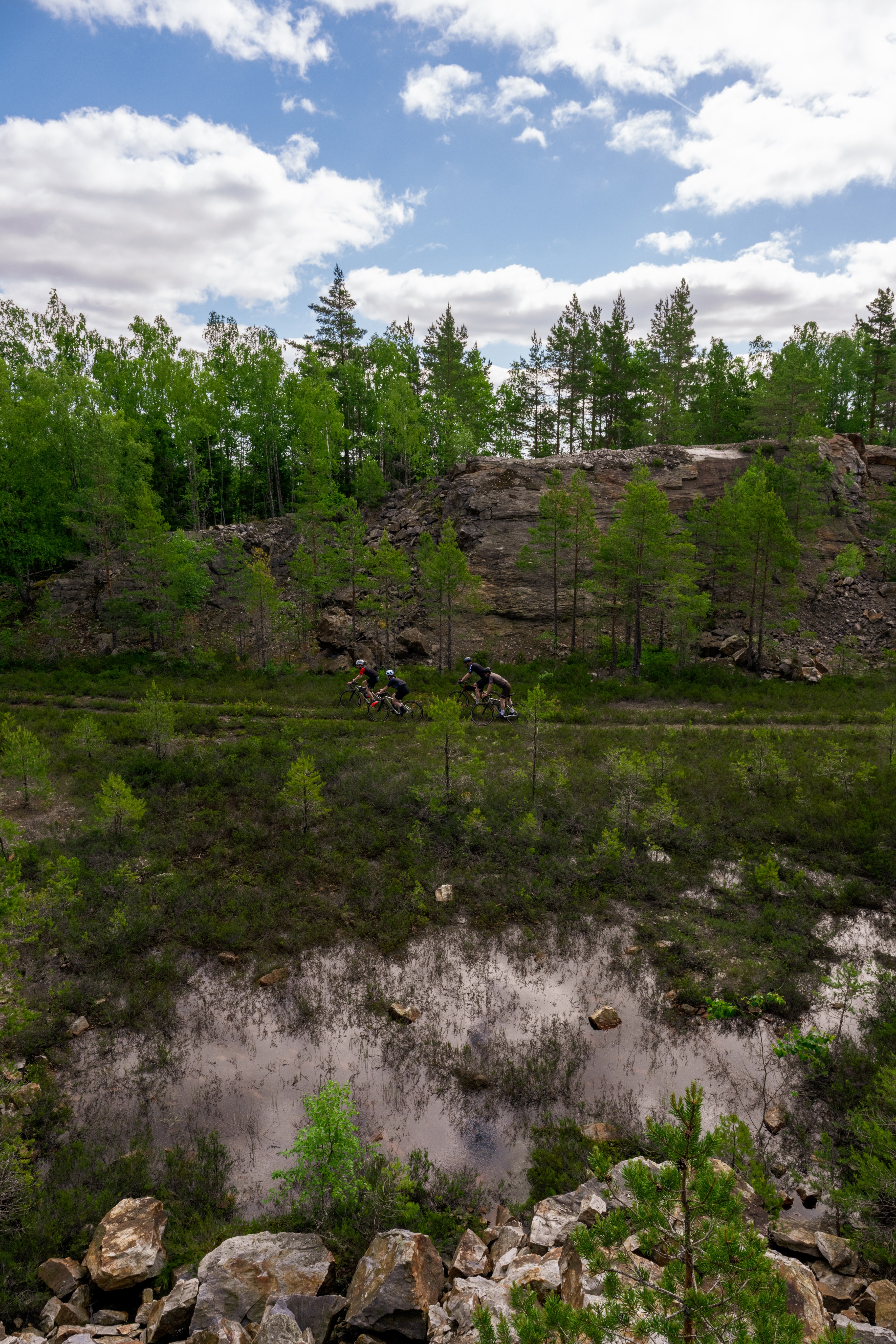500km of perfect gravel roads; why Sweden's Dalsland region is the best gravel destination you've never heard of
As part of our gravel issue for CW's travel month we went to discover a little known part of Sweden


The latest race content, interviews, features, reviews and expert buying guides, direct to your inbox!
You are now subscribed
Your newsletter sign-up was successful
This is an excerpt of a feature appearing in the October 17 issue of Cycling Weekly magazine.
In early June I found myself in Sweden's Dalsland region, riding along endless, rolling gravel roads through luscious green forests, past crystal clear lakes, and eating a meal in a campsite that would put a double Michelin star chef to shame.
I travelled to Sweden knowing little about the country and was about to find out that it's Dalsland region, just north of Gothenburg, stretching from Lake Värnen to the border with Norway, is a place that has clearly been waiting patiently for the gravel bike to be invented.
Three days of riding began in Åmål, on the eastern shores of Lake Värnen - the largest lake in the EU, and third largest in the European landmass after two in Russia. Two miles out of Åmål - mainly on cycle paths - and we turned off the main road onto a gravel track. And that was the last time we saw a major town for three days. I say ‘major town’; the population of Åmål is just over 12,000 people.

For the first hour or so we ride through rolling green farmland. And when I say green, I mean really green. Any brighter and it would be fluorescent. It’s late spring, which means trees, fields, and wildflowers are at their best, while the clean air means it’s viewed completely undulled.
Further on we enter a forest, lined now with lush green ferns, and apart from a few small open patches we won’t emerge from tree cover for the rest of the ride. Soon we’re descending to the shores of a lake, then half a mile later we come across another one. And then another.
The endless mix of water and trees becomes a little disorienting. Was this the same body of water, or another? Our guides Erik and Henrik could have been taking us round and round in circles and I would have been none the wiser. This would become the theme of the day and when I look back at the map of our ride I count 11 different lakes.
The latest race content, interviews, features, reviews and expert buying guides, direct to your inbox!

Riding past yet another lake. 25% of the Dalsland region is made up of water.
Having done the majority of my gravel riding in the UK, I was expecting sections of gravel linked by longer sections of tarmacked roads. Dalsland it turns out was more of the former, and much less of the latter. The majority of the road network in this part of Sweden is gravel and amounts to around 500km. The main roads linking major towns are smooth tarmac, as are the roads in most town or village centres, but everything else is rough stuff and is impeccably well-maintained.

One colour to frame the endless stunning views we ride through was purple, multiple shades of which were provided by Lupins. Similar to Foxgloves they lined the sides of the roads and added to the idyllic look.

At one point on our third day of riding a car drives slowly towards us. A car! I remember them! I suddenly realised I hadn’t seen one since yesterday morning. Zero traffic makes riding beautifully relaxed, meaning we’re able to ride and talk about all things Swedish, so I come away from the trip knowing a lot more about the country.

Our guide Erik, from The Dalsland Experience, is a wealth of knowledge and has been enthusiastically educating others in Sweden of this area’s potential as the gravel bike boom continues.
As we stop for refreshments, by a lake of course, he tells me about Allemansrätten. This is the right to public access and it's fiercley protected. In Sweden anyone is allowed to camp on any piece of land for one night. The only expectation is that they leave no litter and do no damage. Wild bike-packing therefore is a genuine option in Sweden and could cut costs for anyone worried about famously high Scandinavian prices.

The gravel roads in Sweden stretch for miles and make for relaxed riding
On our final day, we had an afternoon appointment at a disused paper mill now transformed into a cultural centre, complete with a café. As the coffee and cake are brought out I ask if café stops are part of Swedish riding culture. “It’s not cycling culture as such,” says Henrick. “It’s part of Swedish culture. We have a word for it. Fika.”

Fika is a Swedish tradition that any cyclists could get on board with
Pronounced ‘feeka’ with the emphasis on the Scandanavian guttural ‘k’ sound, it means going for coffee and cake with friends and taking some time to talk about life. The Swedes might do this during the working day, on a walk, on a ride, anywhere really. And with that, my list of things I know and love about Sweden is full. The country is every bit as good as I hoped it would be, and in Dalsland at least, its beauty is best discovered on a gravel bike.
October is travel month in Cycling Weekly. Over four issues we're exploring the best mountains to climb, new places to go, where to go exploring far from tarmac and finally the UK's beautiful and varied coastline.
Subscribe to Cycling Weekly magazine to get it delivered each week, or read it online on Apple News, Readly or Pocketmags.

Editor of Cycling Weekly magazine, Simon has been working at the title since 2001. He first fell in love with cycling in 1989 when watching the Tour de France on Channel 4, started racing in 1995 and in 2000 he spent one season racing in Belgium. During his time at CW (and Cycle Sport magazine) he has written product reviews, fitness features, pro interviews, race coverage and news. He has covered the Tour de France more times than he can remember along with the 2008 and 2012 Olympic Games and many other international and UK domestic races. He became the 134-year-old magazine's 13th editor in 2015 and can still be seen riding bikes around the lanes of Surrey, Sussex and Kent. Albeit a bit slower than before.